
views
X
Research source
Settling the Debt
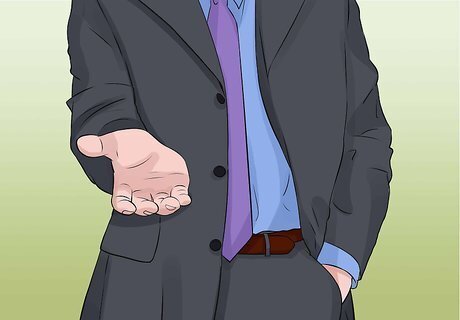
Get information about the debt. Debt collectors may try to garnish wages for an old debt, or a debt that you're not legally required to pay. Any time you get a notice about a debt, demand proof that you're legally required to pay that debt. Find out when the debt was incurred, and who the original creditor was. If the debt has been sold to a collection agency, you may not recognize the name of the company that contacted you, but that doesn't mean the debt isn't valid.
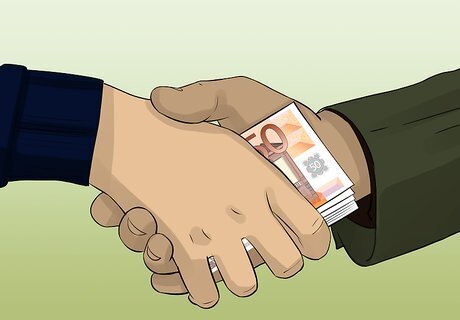
Evaluate your budget. Before you talk to a creditor or debt collector, analyze your current finances and figure out how much you can reasonably pay them. Depending on your situation, this may require cutting expenses or selling assets. Ideally, try to pay as much of the debt as possible in one lump sum. Collecting a single lump sum saves the creditor collection costs, so they may be willing to take a lower amount in settlement of the entire debt if you're able to pay a substantial amount at once. For example, if you owe $5,000, see if you can gather up $2,500 and offer that to the creditor as a lump sum payment. They may not forgive the rest of it, but they'll likely be more willing to accept payments when you've already paid half of it up front. If you can't come up with a sizable lump sum, look at how much you can reasonably pay them per month. Offer to pay off the debt over time.

Consult a credit counselor. When you go through your finances, you may find that you're behind on more than one debt. A credit counselor will help you create a budget and negotiate with your creditors to get your finances back on track. Find a list of credit counseling agencies approved by the federal government by visiting https://www.justice.gov/ust/list-credit-counseling-agencies-approved-pursuant-11-usc-111. Choose the state, territory, or commonwealth where you live from the drop-down to find approved agencies in your area.
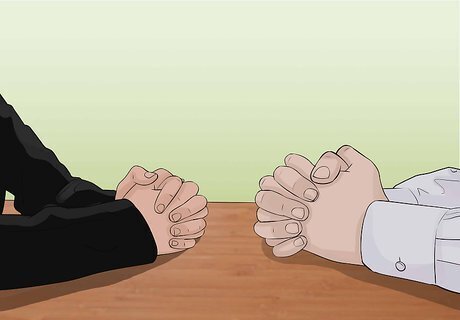
Negotiate with the creditor. Once you've gone through your finances and come up with a payment offer, contact the creditor or collection agency holding the debt. If you're working with a credit counselor, they'll take care of the negotiations for you. If you received a notice from the creditor, it should include a phone number or address you can use. It's usually best to communicate in writing so you have a record of the negotiations, particularly if the creditor has already sued you. Send any letters using certified mail with return receipt requested, so you have record when your letter is received by the creditor.
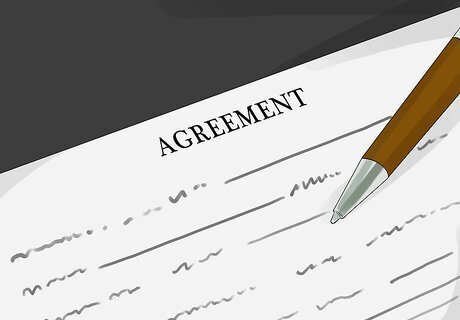
Get any agreement in writing. If you and the creditor are able to work out an arrangement to settle the debt, make sure they send you a letter that lists all the details. Your agreement should include how the settlement will be reported to credit bureaus. If the creditor has already sued you, they should agree to drop the lawsuit as part of the settlement. Without a legal judgment against you, they won't be able to garnish your wages. However, if you don't make payments as agreed, they may refile the lawsuit against you. Check the dates and amounts in the written agreement, and make sure they match up with what you agreed to pay.
Filing for Bankruptcy
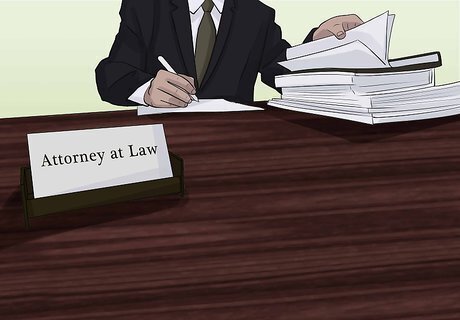
Consult an attorney. You aren't required to hire an attorney to file for bankruptcy. However, bankruptcy courts have strict rules and deadlines that you'll be expected to follow or your case could get thrown out. Most bankruptcy attorneys provide a free initial consultation. Use that opportunity to get some advice on your situation and find out if filing for bankruptcy is right for you. Any bankruptcy attorney will understand your financial position and that you have limited means to pay attorney's fees. If you decide to hire an attorney, they'll work with you to make it more affordable.
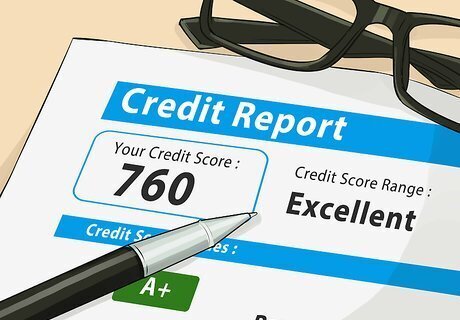
Work with a credit counseling agency. Before you can file a petition for bankruptcy, credit counseling from a government-approved credit counseling agency is legally required. Your credit counselor will take a look at your debt and income, and issue a certificate if you've decided that bankruptcy is your best option. The U.S. Trustee Program supervises bankruptcy cases and approves credit counseling agencies to work with people who are considering bankruptcy. Most approved agencies are nonprofit and charge no fees for their services. Go to https://www.justice.gov/ust/list-credit-counseling-agencies-approved-pursuant-11-usc-111 for a list of credit counseling agencies that have been approved by the federal government.
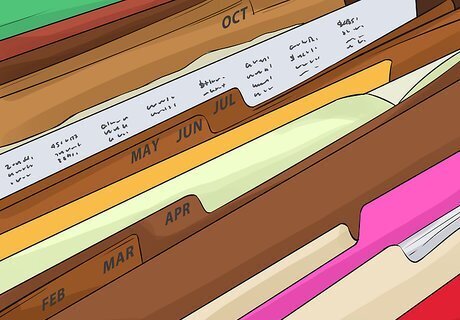
Organize your financial records. When you work with a credit counseling agency, they require information about all of your income, assets, and debts. If you file a petition for bankruptcy, you also must provide a complete list of all of your debts. Request a copy of your credit report and check it carefully. Contact the credit bureaus if there are any errors on your report. Your credit report will include names and contact information for all of your outstanding debts. Contact these creditors if any of these debts are unfamiliar to you and request documentation.
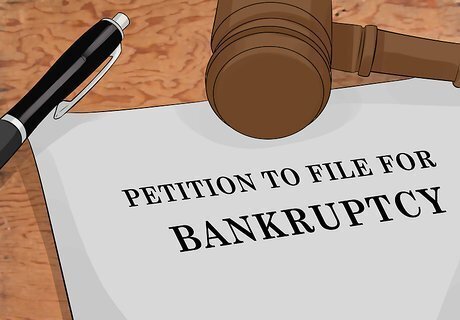
Complete your petition and schedules. To file for bankruptcy, you must fill out a detailed petition, along with schedules that list your income, assets, and debts in detail. If you've decided not to hire an attorney, download the forms from the bankruptcy court's website. Different bankruptcy courts may use specific local forms. Make sure you're at the website for the court where you would file your petition. This will be the bankruptcy court closest to where you live. To find the right court, use the US Courts online court locator, available at http://www.uscourts.gov/court-locator. Choose "Bankruptcy" from the "Court Type" drop down menu, and enter your location.
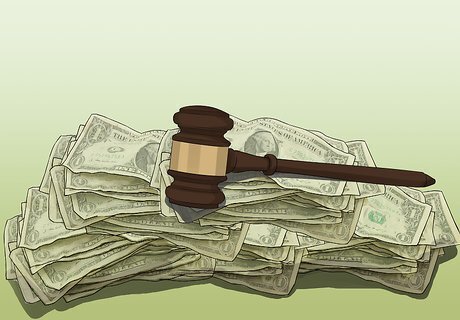
File your petition and schedules with the bankruptcy court. Once you've completed all of your required paperwork, take it to the clerk's office of the bankruptcy court that will hear your case. A filing fee of several hundred dollars is due when you file your paperwork. Check the court's website for an up-to-date fee schedule. You can only pay using cash, a certified check, or a money order. If you're unable to pay the fees, apply to pay in installments or apply for a fee waiver. Bankruptcy fee waivers are only offered in limited circumstances to those who earn less than 150 percent of the federal poverty level. Once you've properly filed a petition for bankruptcy, the court issues a stay on all collections actions, including any wage garnishment orders. However, if your petition is dismissed or if you withdraw your petition, creditors may attempt to garnish your wages again.
Using Exemptions

Research wage garnishment law in your state. Some wage garnishment exemptions are provided by federal law. In addition, each state has laws that may include additional exemptions to protect you from wage garnishments. Generally, creditors are only allowed to garnish your wages if you earn more than $217.50 a week. Then, they can garnish up to 25 percent of your wages, but you must have at least $217.50 a week left after the garnishment. Other exemptions may protect your income from garnishment if you have dependents, or if your wages are already being garnished by another creditor. It's possible to avoid wage garnishment by proving that an exemption applies in your case. However, your employer must first be served with a wage garnishment order before you can claim an exemption. Any wages garnished while waiting for a court to rule on your exemption claim will not be returned.
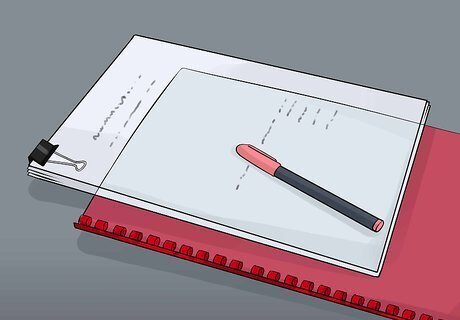
Gather financial documentation. If you want to claim that you qualify for an exemption, provide proof to the court that issued the garnishment order. Use pay stubs, bank records, and other records to support your claim that an exemption applies to your situation. For example, if you have dependents, provide information that they are dependent on your income to live. If you have children, provide proof that they live with you. Demonstrate that your income is the only income in the household, or that your partner doesn't earn enough to support the family.
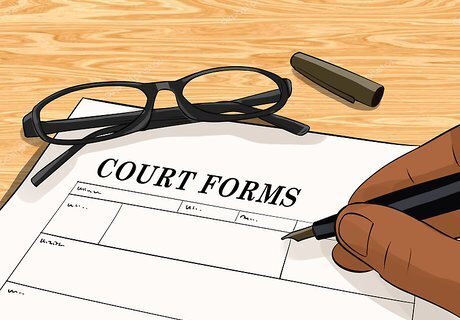
Fill out the required court forms. Each court has specific forms to claim an exemption from wage garnishment. You may receive copies of these forms with your notice that your wages are being garnished. If you didn't receive any forms to challenge the garnishment, or if you've lost your notice, contact the court that issued the notice to find out what your next steps should be. You also may want to contact an attorney to represent you. Most attorneys will provide a free initial consultation. Take the opportunity to learn everything you can about your legal options, even if you ultimately decide not to hire an attorney.
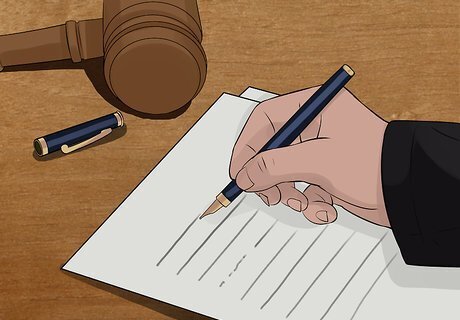
File your forms with the court that issued the garnishment order. After a garnishment order is issued, you have a limited amount of time to challenge the order before it goes into effect. This time may be as short as 10 days, so file your forms as quickly as possible. You may also have to provide a copy of the forms to the sheriff's office that delivered the order. If there's a fee to contest the garnishment, it will typically be around $20. Some courts don't charge any fees at all. When you file your forms, the court typically notifies the creditor that you are claiming an exemption to the garnishment.
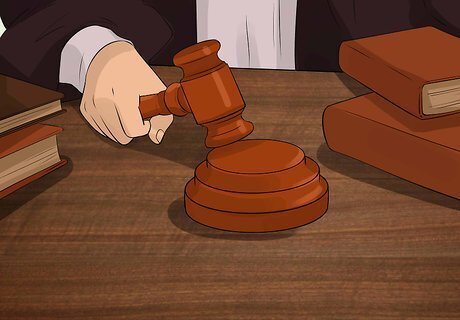
Attend your court hearing. Once you claim an exemption, the creditor has time to contest your claim. If the creditor contests your claim, the court will set a date for a hearing. Appear in court with evidence that you qualify for the exemption. Your hearing typically will be within a week or so of the date you filed your claim, so be prepared. Check with the court regularly to see if a hearing has been set, rather than waiting to get a written notice in the mail. If you miss your hearing, your claim will be denied and garnishment will proceed. The creditor may choose not to contest your claim. In that case, no hearing will be scheduled and the garnishment order will be withdrawn.



















Comments
0 comment